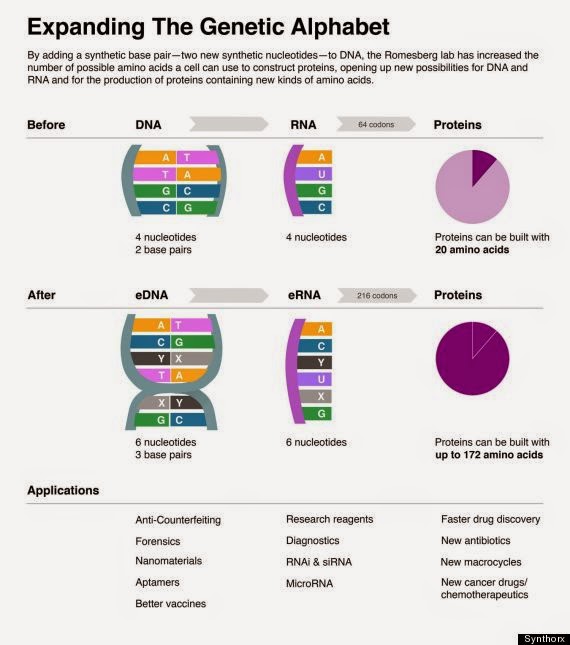 |
| Image source: Huffington Post Science |
For billions of years, the history of life has been written with just four letters — A, T, C and G, the labels given to the DNA subunits contained in all organisms. That alphabet has just grown longer, researchers announce, with the creation of a living cell that has two 'foreign' DNA building blocks in its genome.
Hailed as a breakthrough by other scientists, the work is a step towards the synthesis of cells able to churn out drugs and other useful molecules. It also raises the possibility that cells could one day be engineered without any of the four DNA bases used by all organisms on Earth.
“What we have now is a living cell that literally stores increased genetic information,” says Floyd Romesberg, a chemical biologist at the Scripps Research Institute in La Jolla, California, who led the 15-year effort. Their research appears online today in Nature.
Nature: A semi-synthetic organism with an expanded genetic alphabet
Denis A. Malyshev, Kirandeep Dhami, Thomas Lavergne, Tingjian Chen, Nan Dai, Jeremy M. Foster, Ivan R. Corrêa & Floyd E. Romesberg
Nature: First life with 'alien' DNA
#P4TC:
DNA Codex
Google Mapping Human Genome
Book of Life
Comments